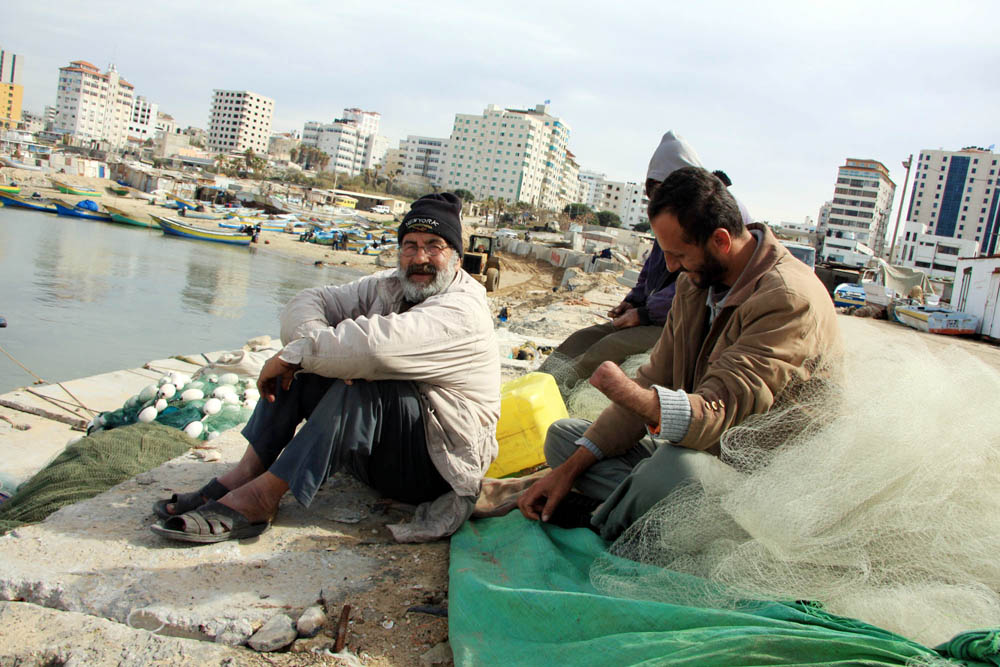Palestinian activists occupy E1 Corridor
Palestinian activists have established a protest encampment in the E1 Corridor, where Israel plans to build new settlements linking Jerusalem with the Ma’ale Adumim settlement bloc.
Palestinian activists have established a protest encampment in the E1 Corridor, where Israel plans to build new settlements linking Jerusalem with the Ma’ale Adumim settlement bloc.
Japan’s Environment Ministry is investigating claims that clean-up contractors at Fukushima have illegally dumped contaminated materials in rivers and open areas.
A UC Berkeley research field in Albany that had been planted with winter greens by Occupy activists was ploughed under at the order of university authorities.
Hundreds of thousands of indignados—”indignant ones,” as econo-protesters call themselves in Spain and Argentina—filled the streets of Buenos Aires, occupying the central plaza.
When the Greek neo-fascist organization Golden Dawn tried to open a chapter in New York City’s Greek neighborhood of Astoria, they were quickly met with vocal repudiation.
Spanish police fired rubber bullets and baton-charged "indignado" protesters holding an "Occupy Congress" action against a new round of announced austerity measures.
The one-year anniversary of Occupy Wall Street may herald a revival of the movement—but continued hedging on an anti-capitalist analysis bottlenecks its potential.
The FBI served search warrants at three homes in Portland. Ore. and issued five grand jury subpoenas in a case apparently related to May Day protests in Seattle.

Nine sugar-cane workers were killed as a group of some 40 gunmen fired on their encampment on lands they were occupying in Negros Occidental province of the central Philippines. Among the fatalities were three women and two minors. The slain were members of the National Federation of Sugar Workers who were occupying part of the sprawling Hacienda Nene near Barangay Bulanon village, outside Sagay City. The occupation was legally permitted under an agrarian reform program established in the 1980s that allows landless rural workers to cultivate fallow lands on large plantations while title transfer is pending. The massacre was reported by survivors who managed to scatter and hide. Some of the bodies were burned by the attackers. "They were strafed by unknown perpetrators while already resting in their respective tents," said Cristina Palabay, head of the rights group Karapatan. Calling the attack "brutal and brazen," she said: "We call on the Commission on Human Rights to conduct an independent and thorough investigation on the massacre. We are one with the kin of the victims in the Sagay massacre in their call for justice." (Photo: PhilStar)
In Episode 14 of the CounterVortex podcast, Bill Weinberg notes the national protest wave that brought down president Park Geun-Hye in South Korea last December, and asks why Americans can't similarly rise to the occassion and launch a mass militant movement to remove Donald Trump. Given this extreme emergency—the detention gulag now coming into place, with undocumented migrants the "test population" for domestic fascism—we should be mobilizing in our millions. Weinberg identifies two significant obstacles to unity: 1. The fundamental split in the left over the whole question of Russia and its electoral meddling; and 2. The phenomenon of party parasitism, with both the Democrats and sectarian-left factions seeking to exploit popular movements to advance their own power. He concludes by asking whether social media can empower us to sidestep the Dems and the alphabet-soup factions alike and work rapidly and efficiently to build a leaderless, broad-based, intransigent movement around the aim of removing Trump. Listen on SoundCloud, and support our podcast via Patreon. (Photo of protest at Foley Square, Manhattan, by Syria Solidarity NYC)
The day after thousands of Peruvians filled the streets of Lima in a March Against Corruption, Duberli Rodriguez stepped down from his posts as head of the country's justice department, Poder Judicial, and president of the Supreme Court. Orlando Velasquez, president of the National Council of the Magistrature, also resigned. The justice minister, Salvador Heresi, had already been sacked by President Martín Vizcarra days earlier, amid a widening scandal concerning the perverting of the court system. The outrage was sparked when national media outlets aired a series of telephone recordings involving an extensive network of judges, businessmen and local authorities describing illegal deals. (Photo: Diario Uno)
Protests against unemployment, poor government services and corruption that began in Iraq's southern oil hub of Basra have spread to several other cities, including Najaf, Amara, Nasiriya and even Baghdad. At least three have been killed since the protests erupted a week ago. Prime Minister Haidar al-Abadi arrived in Barsa to try to calm the situation July 13, flying straight into the city from the NATO summit in Brussels. But the next day he convened a meeting of Iraq's National Security Council, where the decision was taken to cut Internet access in Basra and mobilize army troops to the city. Units from the elite Counter-Terrorism Service and the Army’s Ninth Division have now arrived in Basra. (Photo: Kurdistan24)